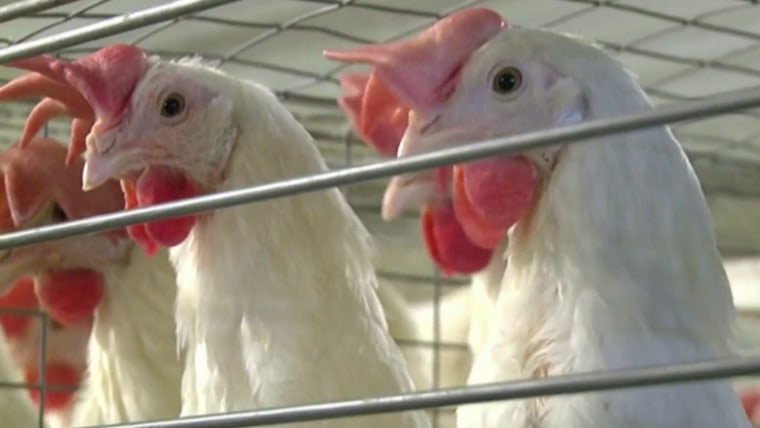The spread of the bird flu among humans and other mammals in the United States has sparked some concern among public health experts in recent weeks, though U.S. officials say the risk it currently poses to the public is low.
Since the first reported outbreak among dairy cattle in March, this particular bird flu virus, H5N1, has spread across hundreds of herds in more than a dozen states. More recently, authorities have reported at least two severe human cases in North America and issued recalls of pet and human foods due to bird flu contamination.
Here's what to know about the outbreak.
How does bird flu spread?
Avian flu, commonly known as bird flu, has been around for decades, but a recent increase in cases among wild birds likely led to an outbreak among dairy cows in Texas earlier this year, according to the Johns Hopkins Bloomberg School of Public Health. Since then, bird flu has been detected in other animals; last week, an animal sanctuary in Washington state announced that 20 of its big cats had died of confirmed cases of bird flu.
Bird flu may be transmitted through exposure to infected animals, such as consuming undercooked or raw meat from infected animals or directly handling such animals. An Oregon-based company issued a voluntary recall of raw and frozen pet food this week after a house cat died of bird flu. Oregon officials said the cat caught an infection from the company's pet food.
Earlier this month, the California Department of Public Health suspended the distribution of Raw Farm raw milk products after milk samples tested positive for bird flu virus. No illnesses were reported in connection with the contaminated raw milk.
The U.S. Department of Agriculture has said poultry and eggs, if properly handled and cooked, are safe from viruses and bacteria, including bird flu.
How many human cases in the U.S.?
There have been 65 recorded human cases of bird flu in the U.S. this year, a vast majority of which was due to exposure associated with dairy cow and poultry operations, according to the Centers for Disease Control and Prevention. In November, a child in California was determined to have been infected with bird flu, the CDC said.
There is no evidence of human-to-human transmission, and infections in humans have largely been mild. But authorities have not been able to locate a source of infection in several human cases, and two severe cases among people — one in British Columbia and one in Louisiana — have alarmed experts.
In November, a previously healthy teenager in British Columbia, Canada, contracted a severe case of bird flu. Local authorities said this week that there was no evidence of human-to-human transmission from the patient, though they could not locate the source of the teenager's infection. The patient is still in critical condition.
The U.S. similarly recorded its first severe case of bird flu in a person in Louisiana last week, after suspected contact with an infected backyard flock. The patient was hospitalized in critical condition. A genetic analysis of samples from the patient revealed that the virus may have mutated in the patient to become more transmittable among humans, the CDC said Thursday, but there is no evidence thus far that it has passed along.
The Louisiana patient was infected with “a strain of the virus different from the one affecting dairy cows and causing sporadic cases in farmworkers in the U.S.,” NBC News reported.
How dangerous is it?
For now, public health authorities say the overall risk of bird flu to the public is low, given that it has not developed a proven ability to transmit from human to human. However, some experts fear the virus could further mutate to do so. They point to the urgent need to eliminate the virus — or at least slow its spread before it turns into a full-blown pandemic.

